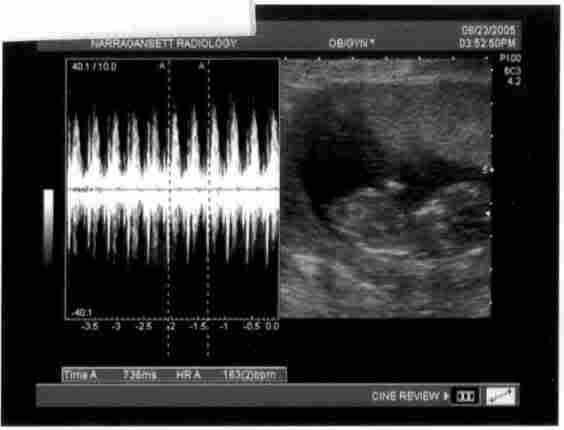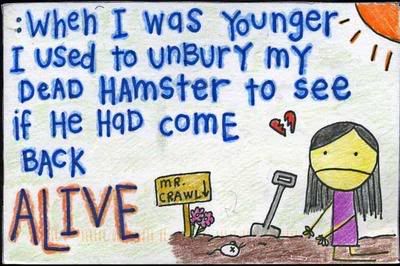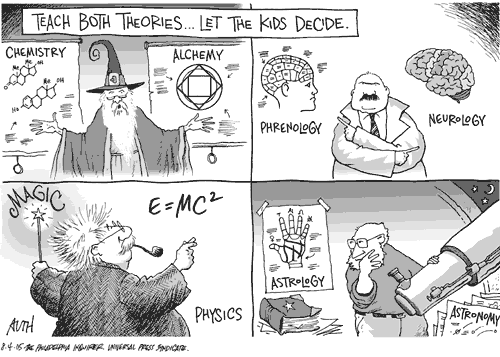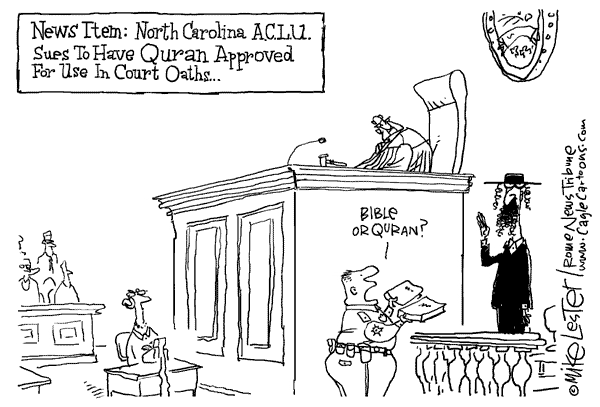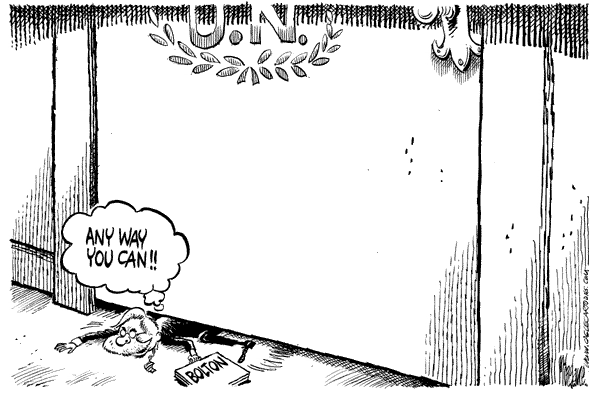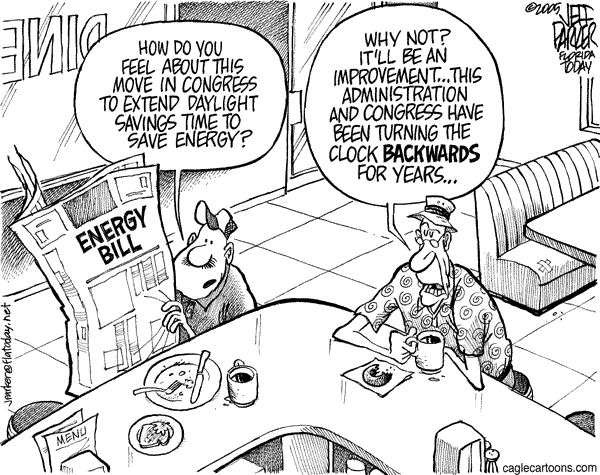Poor Patient Walkin'
Last week I diverted into a general reflection on how our society doesn't quite seem to be what we'd like for it to be, and one of the things that starkly jumps at you that fits into this category is healthcare. In this week's The New Yorker you'll find an article by Malcolm Caldwell entitled
The Moral-Hazard Myth. For those of you with little time I want to take out a chunk of the article and post it for you here:
Several years ago, two Harvard researchers, Susan Starr Sered and Rushika Fernandopulle, set out to interview people without health-care coverage for a book they were writing, “Uninsured in America.” They talked to as many kinds of
people as they could find, collecting stories of untreated depression and struggling single mothers and chronically injured laborers—and the most common complaint they heard was about teeth. Gina, a hairdresser in Idaho, whose husband worked as a freight manager at a chain store, had “a peculiar mannerism of keeping her mouth closed even when speaking.” It turned out that she hadn’t been able to afford dental care for three years, and one of her front teeth was rotting. Daniel, a construction worker, pulled out his bad teeth with pliers.
Then, there was Loretta, who worked nights at a university research center in
Mississippi, and was missing most of her teeth. “They’ll break off after a while, and then you just grab a hold of them, and they work their way out,” she explained to Sered and Fernandopulle. “It hurts so bad, because the tooth aches.
Then it’s a relief just to get it out of there. The hole closes up itself anyway. So it’s so much better.”
People without health insurance have bad teeth because, if you’re paying for everything out of your own pocket, going to the dentist for a checkup seems like a luxury. It isn’t, of course. The loss of teeth makes eating fresh fruits and vegetables difficult, and a diet heavy in soft, processed foods exacerbates more serious health problems, like diabetes. The pain of tooth decay leads many people to use alcohol as a salve. And those struggling to get ahead in the job market quickly find that the unsightliness of bad teeth, and the self-consciousness that results, can become a major barrier. If your teeth are bad, you’re not going to get a job as a receptionist, say, or a cashier. You’re going to be put in the back somewhere, far from the public eye. What Loretta, Gina, and Daniel understand, the two authors tell us, is that bad teeth have come to be seen as a marker of “poor parenting, low educational achievement and slow or faulty intellectual development.” They are an outward marker of caste. “Almost every time we asked interviewees what their first priority would be if the president established universal health coverage tomorrow,” Sered and Fernandopulle write, “the immediate answer was ‘my teeth.’ ”
This rang a bell. I was surprised to learn about how some of the post-docs we know did not have dental insurance - the university charged as much as $80/month for the coverage and that was too dear for the people in question, so they went without. The problem here is that dentistry, while not often quite as expensive as most medical adventures ( dentistry tends to be a one or two shot deal if you have a problem, whereas medial problems are a minimum of two visits and go onward and upward from there, with often more than one doctor) one would pay for without insurance coverage, is definitely in a zone of expense that makes you consider whether you really want to get that crown or not, or whether you want to bother with the periodontist. Is that toothache REALLY so bad that you'll pay $100 to have it looked at and fixed? Many times people will live with the pain over going to a dentist.
In the last year a friend of mine had two CAT scans, an endoscopy, two blood tests and a urine test, and a fair number of doctor's visits to address a problem. All tolled that came to about $35 out of his pocket. Had the visits and diagnostics been outside the health plan he was covered under it would have cost more, but everything that needed to be done was right there, under one roof in a manner of speaking, and so his out-of-pocket expense for the actual medical care was less than what he paid for gas and parking.
This same friend learned that he was going to need two crowns. Crowns aren't a necessity, though on the whole they "tend" to anticipate the inevitable, which in this case means a cracked tooth at an inopportune and potentially painful moment. His dental plan covered only 50% of the procedure, which meant he'd be out nearly $900 to install brand spanking new ceramic crowns. He can afford it without having to stretch a credit card, but how many do we know who'd otherwise play dental Russian roulette the next time they bit into an ice cube or a piece of hard candy, not because they wanted to but because they can't afford to do anything different? Hell, I know PhDs in this category who are actually employed in their profession and not out driving a cab.
The article addresses the concept of the "moral hazard", which essentially comes down to the idea that if we give people the right to universal healthcare they'll abuse it because they don't have to pay for it. This line of thinking results in people who may actually need healthcare spending much less, while those, like my friend above, because he has a decent healthcare
policy, spends much more. Mind you, my friend needed these tests, he didn't go into the doctor and say, "Wow, it'd be awfully cool to have a couple of CAT scans done on me, and while we're at it can we get someone to snake a fiber optic cable through my nose and down into my lungs, maybe scrape a bit of lung tissue [Blogger's note: fortunately lung tissue has no nerves, so the scraping off of some tissue isn't quite as bad as the rest of what goes on here] off for a biopsy. And oh, since I'm here, let's take some blood and urine and do a full battery of tests on it." The problem my friend was dealing with wasn't life threatening nor impinging significantly on his quality of life much beyond being a bit irritating. Fundamentally the problem was just puzzling and he wanted to get some answers. As it turns out the problem doesn't seen to be a real problem, really more a mystery to all concerned than anything else. While in this case he didn't get any answers it's possible he might have at the end of the visits and the tests, but had he to have paid for all of what was done or any part of it out of pocket there's a great chance he wouldn't have been able to afford to do so. Uninsured people rarely go in to see a doctor for this sort of thing, and if they finally do they tend to be in medical extremis, which is to say there at a point when it's then imperative for them to go on with the tests and procedures, and then treatment at their own expense. Of course they then quickly find themselves going into
debt - we learn from the article that unpaid medical bills are the leading reason for bankruptcy in this country.
What it boils down to is that this sense of moral hazard, which is a concept adhered to by and large only in this country (the righteousness of the phrase moral hazard does indeed seem to fit how I personally perceive our country of late), prevents those who need healthcare from receiving it, while those who can afford it because they either have the money or the right job with the right coverage pretty much can break the bank. Essentially practioners of "moral hazard" economics therefore aid and abet, indeed flat out perpetuate a moral outrage.
How a country such as this, which spends nearly half a trillion dollars a year on a military defense against what specifically we're not entirely sure, billions on adventures in Iraq, and God only knows how much on pork barrel silliness, turns its back or washes its hands of a group of hardworking citizens (that's the real stickler here, these people aren't sitting on their tails somewhere collecting welfare, they're holding down jobs with long hours, and sometimes more than one job) who are reduced to letting their teeth rot in their mouths and then having to yank them out for relief, while letting the resulting holes left behind close on their own. If there's any call for pointing to an example of a pure and simple disgrace, well no matter how you look at it for darned sure you have it in the practice and perpetuation of moral hazard over simply taking care of those in need.


